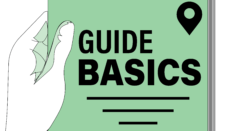The process of education or educating consists of the transmission of knowledge to facilitate learning in different skills, values, beliefs or habits of a specific person or a group of people who, later, will transmit them to others.

This process can be done through discussions or debates, storytelling or teaching in educational centers such as schools, institutes, Vocational Training centers or universities.
Who educates?
It is at this point that the main transmitters of knowledge enter. Within a society, there are many actors who act as educators or teachers throughout the stage
Education is a multidisciplinary or team tool under the baton of several authority figures that appear throughout the life path of the individual:
Parents: They are in charge of accompanying the individual during his growth.
They are the main educational referents of the individual and he will tend to imitate them.
The first words, social behaviors, the consequences of actions, how to eat, how to behave in public… education by parents is a process that will take place throughout the individual’s life.
-Teachers or professors: There comes a moment of the individual in which these actors appear.
Depending on where you are, teachers or professors will appear in your life between the ages of three and six and will usually continue until you reach adulthood and enter the world of work.
These actors are in charge of transmitting the technical knowledge necessary for the development of the individual’s knowledge in the different stages of his life (writing, reading, general culture, experiences…).
Teachers in ancient Greece were considered the “elite” of the city and were usually old men whose life journey had been the source of their knowledge.
-Self-taught education: Once the individual has reached adulthood, with all their learning abilities developed through what their parents or teachers have transmitted to them, they will develop, to a greater or lesser extent, the ability to be self-taught.
This means that they will be able to search for sources of information and knowledge through different consultation tools to continue educating themselves.
Stages of compulsory education
-Infant education: In general, infant education is that which goes from zero to six years. Depending on the legislation of each country, it is usually mandatory from the age of three.
At the end of this stage, the student has to overcome certain elements such as: physical, intellectual, social, affective and personal development of the students and compensate for the inequalities that exist for various reasons.
-Primary education: includes the six academic years from six to twelve years and is compulsory. The ultimate goal of this educational period is the learning of oral expression and comprehension, writing, reading, calculation and the acquisition of basic notions of culture and habits of coexistence, study and work.
Added to this is the development of artistic sense, creativity and affectivity. The ultimate goal is comprehensive training so that students are prepared to move up to the next educational stage.
-Secondary education: This educational stage extends over four years after Primary Education, from 12 to 16 years of age.
Its purpose is for students to acquire the basic knowledge of culture:
-Humanistic, scientific and technological.
-Develop and consolidate study and work habits.
-Prepare the incorporation to later studies or the labor insertion.
-Train students to exercise their rights and obligations in life as citizens.
In short, it provides the necessary training to continue studies towards the Baccalaureate, Intermediate Vocational Training or incorporation into the labor market.
Non-compulsory education
-Bachillerato: consists of the last stage of Secondary Education and is not compulsory. Its duration is two courses, normally between 16 and 18 years.
At this point, the student chooses the modalities of knowledge that he wants to study, making it a more specialized and specific training.
The Baccalaureate helps students to acquire their maturity at an intellectual and cognitive level, as well as elements and skills that allow them to carry out their functions within society with the necessary maturity to later develop mature knowledge and skills in their professional life. And, in the case of continuing studying, you can do it with the necessary maturity.
-Intermediate and Higher Level training cycles: these are studies that allow the student to obtain all the necessary skills to adapt to present and future work situations and acquire a profession.
The Higher Degree provides an official title of Higher Technician of the corresponding profession.
-University: is that type of higher education that is carried out after completing all the studies of Secondary Education.
It is characterized by the specialization in a career, which means that common knowledge is no longer acquired, but each one chooses a particular career with which to specialize in some knowledge (politics, law, medicine, languages, history, science, engineering).
In general, basic university studies last four years, although its duration depends on the individual. After that, the student can continue specializing through a Master’s degree and, later, a PhD.
Right to education: Article 26
According to article 26 of the UN Universal Declaration of Human Rights, free and universal primary education is compulsory.
In this article we find that right “to the full development of the human personality”, which is also reflected in articles 22 and 29.
In this article we find those points in which the free elementary instruction (Primary Education) is specified, as well as its compulsory nature.
In the case of technical and professional education, the states must guarantee its access to students. And the same happens with access to the University. According to the document, access to these studies should be equal for everyone according to their academic merits.
At the same time, the objectives that the educational system of a country must set are also established. Among which is the development of the personality of the students, through this transmission of knowledge. Establish a conscience with their obligations and freedoms and that they are aware of their rights.
Without forgetting tolerance: respect all human beings and their differences (sex, ethnic group, ideology…).
Finally, this article guarantees the freedom of parents to choose the type of education they want to give their descendants.
